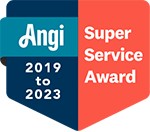Like any other market, the roofing industry experiences scam artists from time to time. Unfortunately, these scams can hurt everyone in the industry, both contractors and homeowners alike. Homeowners who fall prey to roofing scams often end up with shoddy workmanship, substandard materials, or even no work at all. On the other hand, honest and experienced roofers are unfairly judged by potential customers. Here's what you should know:
How Roofing Scams Happen
Florida is a popular state for roofing scams due to its hurricane-prone climate. Storm chasers typically take advantage of homeowners who are looking to repair or replace their roofs after natural disasters. In some cases, the contractor may offer a low price and then use substandard materials or inadequate workmanship to complete the job. Other scams involve the contractor demanding payment upfront before any work is done and then disappearing without returning to finish the job. This is illegal and damaging to both the homeowner and other contractors.
How to Identify Roofing Scams
The best way to protect yourself and your home is to be aware of the warning signs of a roofing scam. Some common red flags include:
- Promising low prices that seem too good to be true
- Not providing a written contract
- Asking for full payment upfront without completing any work
- Offering a warranty that isn’t standard in the roofing industry
- Not being licensed, bonded, or insured
Lawmakers Fighting Roofing Scams?
Many parts of the country are working hard to eliminate fraud and misrepresentation in the roofing industry. For example, there are great laws in Florida that protect consumers from unscrupulous roofers. The state of Florida has a few key regulations that help protect homeowners and their investments. The laws are also designed to protect insurance companies from fraudulent roofing contractors. The Florida lawmakers have eliminated the 25% rule that required homes with 25% or more roof damage to be replaced. Dishonest roofers would assess the condition of a roof and tell the homeowner that it was much worse than it actually was. This would cause homeowners to spend more money on a new roof when one wasn't necessary. The rule has been removed. You as a homeowner can now decide if you want to repair your roof or replace it. Another great piece of legislation in Florida requires insurance companies not to drop homeowners with roofs that are 15 years or more. An inspector can certify that this roof has 5 more years of life left, but insurance companies cover the roof until it reaches 20 years. There's also a $10 million grant program in the state of Florida that can help you with roof repairs or replacements if you qualify. Those who live in High-Velocity Hurricane Zone (HVHZ) areas are eligible to receive grants and loans for roof repairs.
What You Can Do About Roofing Scams
While it's great that the state of Florida is taking steps to protect homeowners from scams, it's still important to take precautions when looking for a roofing contractor. Always get at least three bids from licensed contractors before making a decision, and verify the contractor's license and insurance before you sign a contract. It also helps to check with local homeowner associations, references from past customers, or even talk to neighbors who have recently had their roofs done. You can also ask the contractor for proof of their liability insurance and look up any complaints filed against them online. By being cautious and doing your due diligence, you can help keep roofing scams at bay and make sure that everyone involved in the process is treated fairly. You can also report any suspected fraud or inappropriate behavior to your local consumer protection agency, which may be able to take action against unscrupulous contractors and prevent them from targeting other homeowners. Taking the time to investigate any roofing contractor you consider hiring could save you thousands of dollars in the long run and help protect your neighbors from falling victim to roofing scams. In addition to vetting contractors, it is important to make sure that they are properly licensed as well. Most states have laws in place that regulate who can perform roofing services and what types of licenses they must have. It’s also advisable to ask contractors for proof of insurance before they start any work, as this will help protect you in the event of an accident or injury that occurs on your property. Finally, make sure to keep detailed records when it comes to roofing repairs or replacements. This includes keeping copies of all contracts and invoices to prevent any discrepancies or misunderstandings. By taking the time to do this, you can ensure that your roofing project is completed correctly and within budget.
How City Roofing Can Help
City Roofing is here to help homeowners and businesses protect their roofs from scams and shoddy workmanship. We provide certified roofers with licenses, insurance, and years of experience in roof installation. Our team will take the time to inspect your roof for any potential issues, such as damaged flashing or missing tiles. From there, we’ll provide you with an accurate estimate for repairs or a new roof installation. We’ll also make sure that all permits and paperwork are filed correctly so that your project is completed by local building codes. If you have any questions or need guidance on matters roofing, our certified roofers are always available to answer any inquiry. We’re committed to helping you understand the complexity of the roofing process and the best solutions for your budget. Reach out to us to learn more.
Subscribe to City Roofing's Blog




Comments